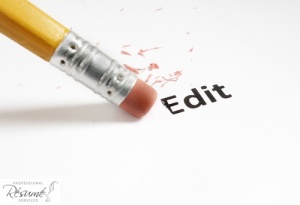Resumes that get you hired need to stand apart from the thousands of other resumes companies may receive for a given job listing. For this reason, many people think it’s best to get creative when writing an effective resume. Unfortunately, resumes and cover letters that are too unusual can raise red flags and prevent employers from even looking at them.
It’s Not Tailored to the Job
When prospective employees spend too much time getting creative with their resumes, they often fail to customize them to fit the exact specifications of the job to which they are applying. Whenever you apply for a position, it’s important to specify skills that relate directly to the job. Everything should be tailored to the job’s needs.
It Has Too Much Flair
The typical font styles may seem boring, but these are the ones employers expect. If you get fancy with fonts or use colorful pie charts and other features, you will take away from your actual skills and distract potential employers. Simple and easy-to-read is essential.
You Overdid the Keywords
While keywords are a must in today’s resumes and cover letters, especially when submitting them online, there is such a thing as too much of a good thing. Be careful to choose keywords that relate to your skills and the job, but don’t select too many. It’s also critical to write carefully so it doesn’t read as if you stuffed the keywords in for the sake of including them.
Too Much Fluff
Resumes that get you hired are short and to the point. Employers don’t want to spend a lot of time reading. If your resume is filled with irrelevant information or you go into a lot of details, your resume is likely destined for the trash can. Before submitting a resume, read through it and cut out any unnecessary words.
Getting creative with your resume and cover letter may seem like it’s the best way to get hired for a job, but it can hurt you in the end. Fluffing out your resume to make it look longer or more impressive is a serious mistake that can put your resume at the bottom of the pile. Too much flair or overstuffed keywords can also lead to disaster, rather than success. If you want to maximize your chances of getting the job you want, make sure your resume is factual and to the point. The best way to stand apart from the other candidates is by writing an effective resume that highlights your relevant skills.








